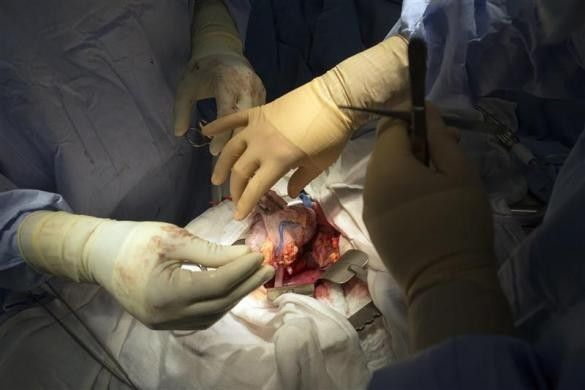Valentine’s Day 2015: Kentucky Woman Donates Kidney To Man Who Became Her Husband

Organ donation has long been around, but it usually is one way, meaning one is a donor and the other is the recipient. However, in Kentucky, a 25-year-old woman literally gave her kidney to a total stranger, but she got back in return his heart – that is figuratively.
Ashley McIntyre met 25-year-old Danny Robinson while he was undergoing dialysis. She found out that he needed an organ donor and she volunteered, Daily Mail reports.
McIntyre heard about Robinson’s need for a kidney from her mother, who in turn heard in from his mother, Denise Stutzenberger, in a radio show. When Danny’s mum met Ashley for the first time, she told the younger woman, “You are going to be my daughter-in-law, you just don’t know it yet.”
Most kidney recipients usually require that the donor come from a blood relative to avoid organ rejection. Danny’s family members actually offered to donate their kidney to him, but there was no match, which meant two years of wait for him to find a donor whose kidney would match his.
To worsen the situation, there were only 33 living donors in the state for 135 kidney patients waiting for transplants. A series of tests found that the two matched perfectly, which led to a face-to-face meeting for the two residents of Louiseville and their families at a Cheesecake Factory restaurant.
This was followed with phone calls and text messages until the transplant took place in April. With an organ shared between the two of them, it was inevitable that romance brewed after they had a family barbecue on Memorial Day.
By Christmas Day, Danny had proposed and she gave her “Yes.” Ashley is now pregnant and expecting a baby in June.
McIntyre told USA Today, “I never in a million years imagined this would happen … It was a whirlwind. It’s crazy how it all worked. It was all planned out by God.”
Steve Woodle, division director of transplantation at the University of Cincinnati’s College of Medicine, explained the rejection of kidney by recipients to an antibody called Human Leukocyte Antigen. It is an immune system agent that targets and attacks anything on a molecular level that the body identifies as foreign, reports Newsrecord.
The antigen is inherited from one parent. Woodle estimates that about 20 percent of all kidney transplant patients in the US develop antibodies against the organs or tissues of other people, causing a longer wait for an organ that would match and cutting drastically the chances of their survival.
To contact the writer, email: v.hernandez@ibtimes.com.au





















